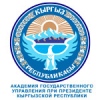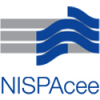Project: “Blockchain: an innovative solution for smart governments”, IMD (Switzerland)
× Reading modeProject: “Blockchain: an innovative solution for smart governments”
IMD (Switzerland)
Background and statement of the problem
Blockchain technology is the subject of growing attention among governments and private investors. A blockchain is a distributed database (digital ledger) which stores encrypted data records on multiple computers and servers in a public or private network. Distributed ledger technologies eliminate the need for intermediaries and simplify the management of trusted information, making it easier for government agencies (and citizens) to access and use public-sector data while maintaining the security of this information.
The advantages of blockchain therefore lie in the transparency that it brings to the public sector, the reduction of inefficiencies, the higher level of information protection against manipulations and thus the potential improvement of the citizens’ prosperity.
Focusing on the public-sector, blockchain technology can be used to verify transactions and changes to key registers, transaction logs, agreements, and any other data. In the last 15 years, for example, Estonia has been a pioneer in the application and integration of this technology in e-government services.
Activities
The aim of this study is to provide a ground-breaking analysis of the impact and the benefits of the blockchain technology when applied in the public sector.
The potential activities required to achieve this objective are desk research and field research (interviews with government agencies members, technology developers) activities.
Deliverables
- An analysis of the blockchain technology, its current applications and its potential impact on the public administration services
- A case study on the application of blockchain technology in Estonia
- A manual of guidelines and policy suggestions based on the report and the analysis of the Estonian case






































